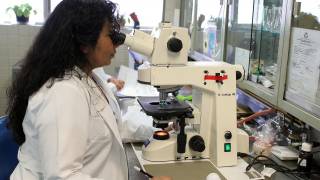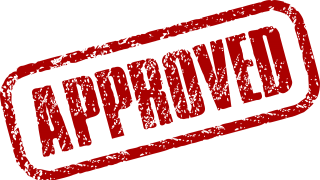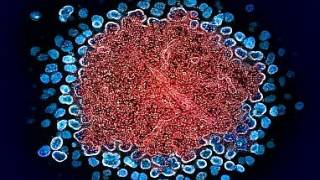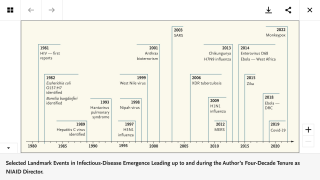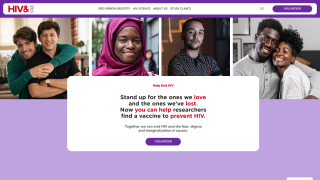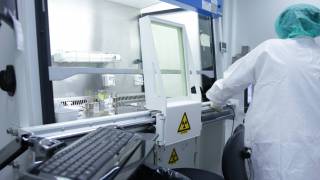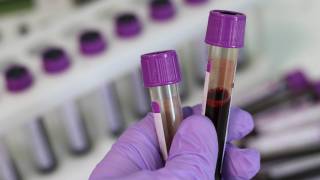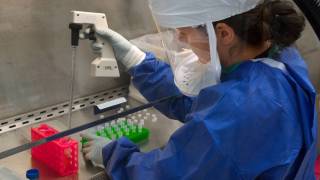Tetravalent Mosaic-Based HIV Vaccine Candidate Significantly Enhanced Immune Responses

Since the beginning of the HIV epidemic in 1981, no preventive HIV vaccine has been approved by the Food and Drug Administration (FDA).
With more than 1 million people living with HIV in the USA, and 16 percent unaware of their status, a preventive vaccine is needed, says the Centers for Disease Control and Prevention (CDC).
A preventive HIV vaccine would teach the person’s immune system to recognize and effectively fight HIV in case the person is ever exposed to HIV.
There is some good news.
The primary analysis of immune response data for a tetravalent mosaic-based, preventive vaccine candidate against HIV-1 infection was announced today.
This early-stage, Phase 1/2a TRAVERSE study among 198 HIV-negative volunteers from the USA and Rwanda, a vaccine regimen including a tetravalent (4-valent) mosaic viral vector, was compared to a regimen containing a trivalent (3-valent) mosaic vector.
At 28 weeks, the tetravalent mosaic-based vaccine was found to be well tolerated and significantly enhanced the breadth of immune responses to different HIV-1 strains compared to the trivalent version.
The tetravalent vaccine is now in large-scale efficacy testing, said Janssen Vaccines in a press release.
“We urgently need new prevention tools to turn the tide of the HIV pandemic, and an effective preventive vaccine would be a vital asset to help us achieve an HIV-free future,” said Hanneke Schuitemaker, Ph.D., Vice President, Head Viral Vaccine Discovery and Translational Medicine, Janssen Vaccines & Prevention B.V.
“Our goal is to develop a universal vaccine that could be deployed against any strain of HIV circulating in the world.”
Developing an effective vaccine against HIV has proven challenging due in part to the significant global genetic diversity of the virus.
Janssen’s investigational vaccine regimen contains mosaic immunogens (molecules capable of inducing an immune response) that have been created using genes from a wide variety of HIV-1 subtypes.
Both the trivalent and tetravalent versions of the mosaic-based vaccine contain viral vectors that deliver immunogens designed to elicit immune responses against the three main proteins of HIV (Env, Pol, and Gag).
But the tetravalent formulation adds a fourth immunogen, which is Env-focused and designed to enhance the breadth of immune responses against HIV-1 subtypes.
These new TRAVERSE results build on encouraging safety and immune response results for the mosaic-based vaccine from the Phase 1/2a APPROACH study that was shared at the 22nd International AIDS Conference (AIDS 2018).
Early findings from TRAVERSE and APPROACH were critical in enabling the first large-scale efficacy study for a mosaic-based vaccine regimen, HVTN 705/HPX2008 (also known as ‘Imbokodo’), to commence in November 2017.
This Phase 2b study is assessing a regimen based on the tetravalent vaccine that was first clinically evaluated in the TRAVERSE study. It aims to enroll 2,600 women aged 18-35 in five sub-Saharan African countries to determine whether the vaccine is safe and efficacious in reducing HIV-1 infection in this population.
Results from HVTN 705/HPX2008 are expected in 2021. Additional large-scale studies will be needed to support licensure of the mosaic-based vaccine regimen against HIV-1.
In the primary TRAVERSE analysis, most adverse events were mild or moderate. In terms of immunogenicity, both vaccine regimens induced immune responses in all vaccine recipients.
However, the breadth and magnitude of immune responses were greatest for the tetravalent-based regimen comprising Ad26.Mos4.HIV as the prime and Ad26.Mos4.HIV and Clade C gp140 as the boost.
Janssen’s partners on the TRAVERSE study include Beth Israel Deaconess Medical Center at Harvard Medical School; Bill & Melinda Gates Foundation; HIV Vaccine Trials Network; National Institute of Allergy and Infectious Diseases, part of the US National Institutes of Health; Ragon Institute of Massachusetts General Hospital, MIT and Harvard; and the United States Military HIV Research Program at the Walter Reed Army Institute of Research, with the Henry M. Jackson Foundation for the Advancement of Military Medicine.
Since 2005, Janssen Vaccines & Prevention B.V. has been participating in the NIH-supported Integrated Preclinical/Clinical AIDS Vaccine Development (IPCAVD) program under grants AI066305, AI078526, and AI096040.
Visit jnj.com/HIV to learn more about the Janssen Pharmaceutical Companies of Johnson & Johnson and its partners across prevention, treatment and cure research.
Our Trust Standards: Medical Advisory Committee



